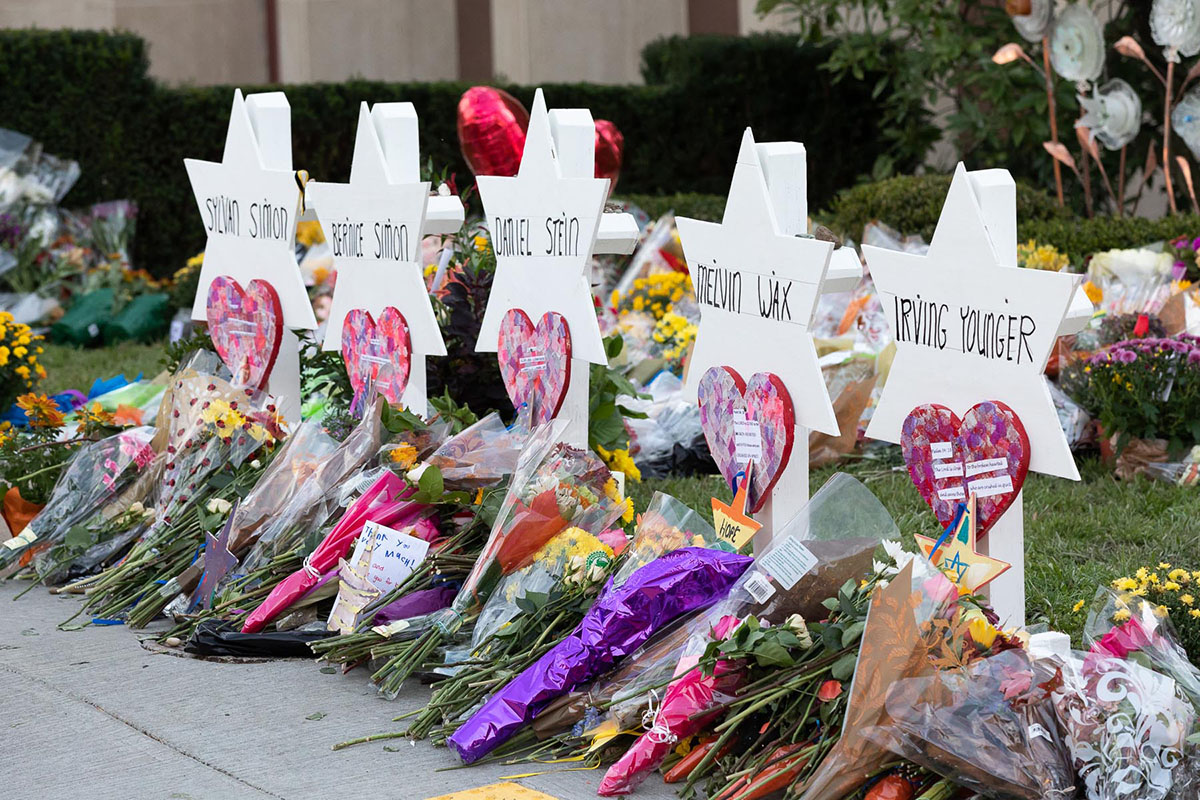Kurdish community supports Pittsburgh’s Jewish community after attack
Less than a month after a bloody assault on a synagogue in Pittsburgh, a group from the Kurdish community of the greater Washington DC area visited the city to meet with members of the Jewish community, express their condolences, and show their support.
On October 27, the Tree of Life synagogue was attacked by a crazed gunman shocking American Jews, and Americans more generally. It was thought that such things simply did not happen in the US — but that belief proved tragically wrong.
The rampage by the 46-year-old Robert Bowers, who hated Jews and immigrants, killed 11 people and became the deadliest assault on American Jews in US history.
Moved by the horrendous nature of the attack, members of Washington’s Kurdish community felt they should do something to express their solidarity, and last week, they presented Pittsburgh’s Jewish community with a generous contribution.
Kurdistan 24 accompanied them to the city of 300,000 in western Pennsylvania, once renowned for its steel industry and now a high technology hub.
We spoke with Hikmet Bamarni, who led the Kurdish effort, outside the synagogue where the attack occurred. The building was still closed, but its entrance was filled with tokens of empathy and sorrow: flowers, teddy bears, ribbons, and candles.
“As Kurds, we have been through a lot of tragedies,” Bamarni explained. “We condemn this attack” in the strongest way possible, and we want to be “part of supporting the victims of this tragic incident.”
“We decided as the Kurdish community in the Washington DC metropolitan area to do something,” and “many people were interested in donating some money to the victims of this incident,” he continued.
Bamarni likened the long persecution of the Kurds to that of the Jews: “chemical weapons were used” against us, he said. “They destroyed our villages and threw us out of our homes. We’ve been attacked many times.”
The latest such assault came from the Islamic State (IS), which carried out genocide in Shingal and other areas of Kurdistan, he said.
Bamarni emphasized the tolerant, pluralistic nature of Kurdish culture. Zakho once had three neighborhoods, he stated: one for Christians, another for Jews, and a third for Muslims. The three communities lived peacefully, side by side.
He explained that when Christians face trouble in Iraq, whether in Baghdad or Basra, “they come to Kurdistan.” The same with Yezidis (Ezidis), as well as Arabs from Syria and Iraq.
“They all come to Kurdistan,” Bamarni affirmed.
Indeed, US officials have recognized and applauded the Kurdistan Region’s culture of tolerance.
Sam Brownback, US Ambassador-at-Large for International Religious Freedom and head of the State Department’s Office of Religious Freedom, told Kurdistan 24 earlier this year, “The Kurds have been particularly good about protecting people of minority faiths” and “supportive of basic religious freedom.”
Delovan Barwari also traveled from Washington to support Pittsburgh’s Jewish community.
Barwari explained that he had been “shocked” by “this atrocity.”
“It was unbelievable to see in this modern age,” he continued, that “this type of bigotry still exists in the world, especially in the US,” particularly as “religious freedom and tolerance” are woven into “the fabric of the country.”
“The Kurds and the Jewish people have many similarities,” he suggested.
“They have both suffered many centuries of injustice and oppression at the hands of their neighbors” and “both have experienced genocide.”
Barwari also stressed the tolerance of Kurdish culture, noting that Iraqi Kurdistan had become a “safe haven” for all those “fleeing [IS], al-Qaeda, or the turmoil that has been inflicted upon them.”
As he explained, that includes “Christian communities, the Ezidi community, and even the Arab community.”
All of them, he concluded, “have come to Kurdistan, where they feel safe and have been welcomed for the past four years.”
Source: Kurdistan24

